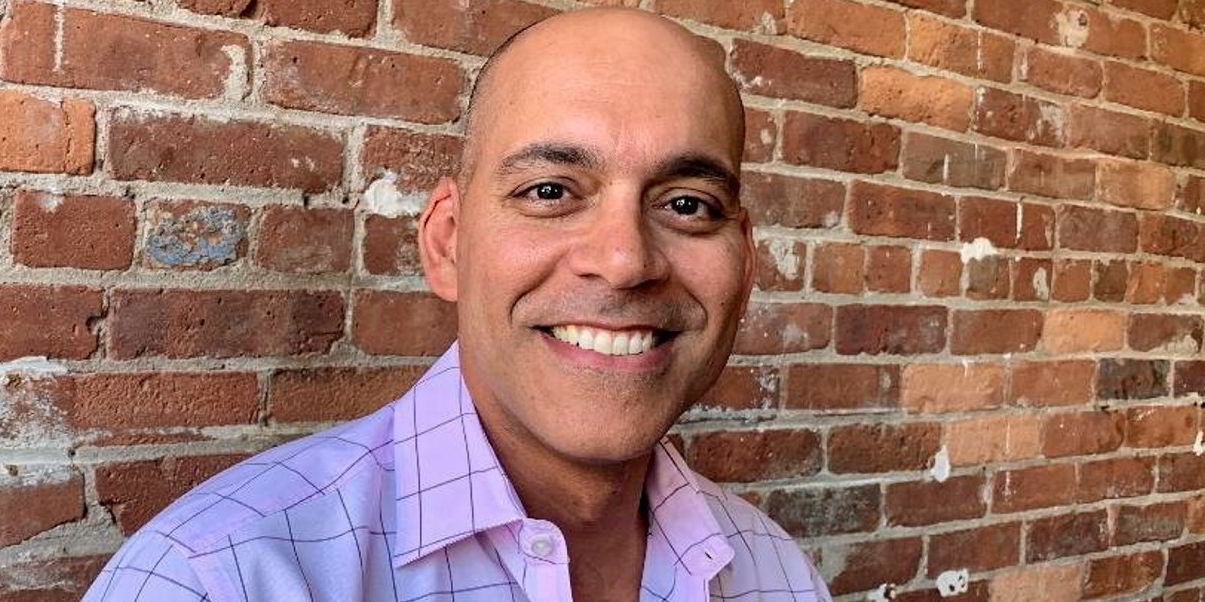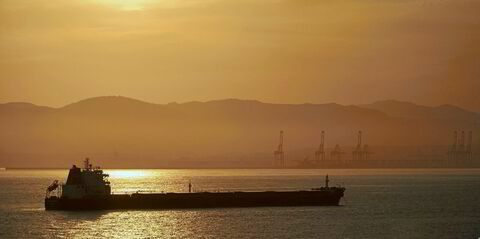With 24 US-listed shipping companies under his coverage, Jefferies analyst Omar Nokta is a busy man.
Life is about to get busier over the next three or four weeks as most of those companies report earnings for the first quarter.
Streetwise took advantage of a few moments of calm before the storm and caught up with the 19-year ship finance veteran to sound out his expectations for assorted operating sectors and for some of the key shipowners in those segments.
What has Jefferies excited?
“Tankers and the LPG gas trade — those are the two we’re excited for,” Nokta said.
He acknowledged that some of the shine has been taken off the tanker market by the surprise production cut by Opec+ and a recent pullback in rates.
“But we think the supply-demand balance is tight. We’ll most likely see a reversal of the production cuts later this year. So absent the Opec stuff, the tankers are going to be reporting very strong first-quarter results — in some cases the best quarter ever, and definitely much stronger than the first quarter of 2022,” he said.
As always during earnings season, what owners say about the quarter past isn’t necessarily as important as their comments on the current quarter.
“I expect the guidances for the second quarter to be for rates stronger than the first, and also stronger than where analyst estimates stand at the moment,” Nokta said.
As for LPG, he expressed surprise that investors haven’t piled into the trade in larger numbers.
“LPG has been on a phenomenal run and it continues to fly under the radar. There’s really limited discussion among investors. Now I get it, LPG is only about 1% of global trade, compared to 3% for LNG and 27% for tankers. LPG is small.”
The market sees VLGCs earning about $70,000 per day, or double this time last year. While there is a large schedule of newbuilding deliveries this year, it backs off after that.
“There’s no big orderbook, unlike 10 years ago, when we saw it build with heavy deliveries for three or four years straight,” Nokta said.
What are you less excited about?
“It would have to be container ships that have the least to be excited about,” he said.
“It’s a weak spot freight market. The liner companies are doing all they can to boost rates with moves like blank sailings, but at this point, it’s not working.”
The culprit is the de-stocking mode of retailers, particularly in the US, who were left oversupplied in 2022 in a chaotic phase of supply-chain disruptions that ultimately left many merchants with redundant deliveries.

“This is much more about May or June of last year, when retail inventories really spiked. It’s taken a long time to chew through that inventory,” Nokta said, adding that an end is in sight later this year.
The liner operators have it much worse than container ship lessors, he said, and since Jefferies covers only one, Streetwise asked about Israeli operator Zim.
“They’re a great company with very strong management and plenty of cash,” Nokta said.
“They have many levers they can pull. But in the interim, we are concerned with the potential surprise to retail investors if there is no dividend. Yes, it’s possible. Since they pay out a percentage of earnings, the risk is that earnings go into the red.”
And what about dry bulk?
“I would say we’re optimistic about a gradual improvement in the market over the next several quarters, but we’re concerned in the mid-term,” he said.
Part of that concern comes from an overly aggressive jump by Chinese steel producers in March that caused prices to drop off and iron ore imports to slow.
Another worry centres on the coal trade. Falling natural gas prices might lead many users to switch to that energy source and away from coal.
“The minor bulks also are at risk for potential declining volume based on slower economic backdrop. They benefited from above-trend GDP and now will come down as GDPs slow,” Nokta said.
Individual companies to watch
“Teekay Tankers is one we’re looking at closely. As far as we can see, they’re going to be the first to get themselves in a net-cash position, whether that happens this quarter or next, but the last to announce a cash-rewards programme.”
What that means is Teekay has been slashing debt but has been reluctant to push out a shareholder dividend. Many observers believe starting a payout is just a matter of when.

As Streetwise recently reported, Teekay Tankers was the top gainer among the Jefferies stocks in the first quarter.
It soared from a starting point of $30.30 per share on 3 January to a close of $42.93 on 31 March — a gain of 42%. Teekay has a fleet of 44 tankers: 25 suezmaxes, 10 aframaxes and nine LR2 product tankers.
“There’s been a build-up of investors buying in on the premise first of strong tanker rates and a balance sheet that’s in great shape, and second, the opportunity for a dividend announcement that could be a catalyst. That’s what’s driving the stock higher,” Nokta said.
He singled out one more tanker company: Belgian crude giant Euronav, which has been through an on-again, off-again merger flirtation with Frontline and tycoon John Fredriksen.
Although Fredriksen walked away from the combination, he has pushed his shareholding above 26% — Euronav’s largest — and Nokta isn’t so sure a deal ultimately can be ruled out.
“Euronav is still the worst performer among our coverage group, trading below 90% of NAV,” he observed.
“I’m surprised that the valuation does not reflect a possibility of a renewed tie-up with Frontline. I’ve talked with investors about this. The merger-arbitrage investors are not looking at the stock the way they were last year.”
Investors who just want to play tankers don’t want to deal with the uncertainty of Euronav’s board composition and resistance from the Saverys family, he said.
“It’s put Euronav on an island,” Nokta said, adding that he hopes the owner’s recent announcement of plans for an enhanced dividend might be the lifeline it needs to rekindle interest.
More ship finance news
Longtime New York-based merchant bank AMA Capital Partners quietly left its penthouse offices in the Chrysler Building during the depths of Covid-19 for a charter-filled converted piano works in the south end of Stamford, Connecticut. Click here to read.
Greek owners Castor Maritime and Top Ships will try to boost their share prices to regain compliance with Nasdaq listing requirements. Both companies received letters within a day of each other putting them on notice that the stocks have been trading below the $1 minimum for 30 consecutive days. Click here to read.
Veteran Evercore ISI analyst Jonathan Chappell was able to take a victory lap in a client note on Tuesday, but his advice on how to play publicly listed tanker stocks could help investors join him on the next one. In a nutshell: buy on the dips. Click here to read.



